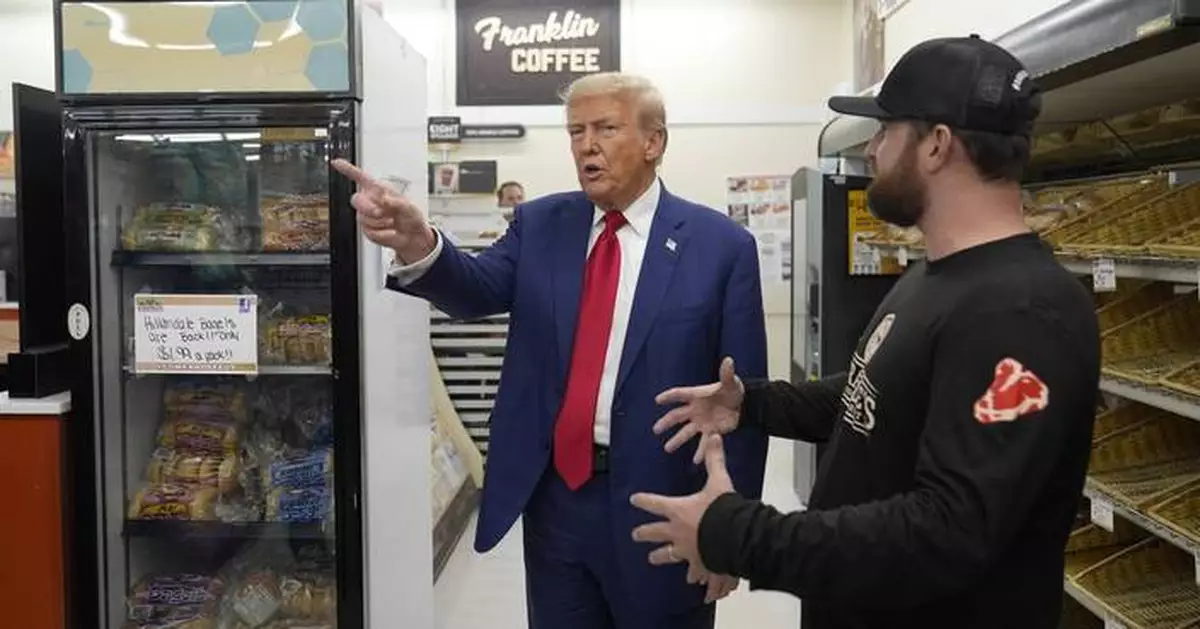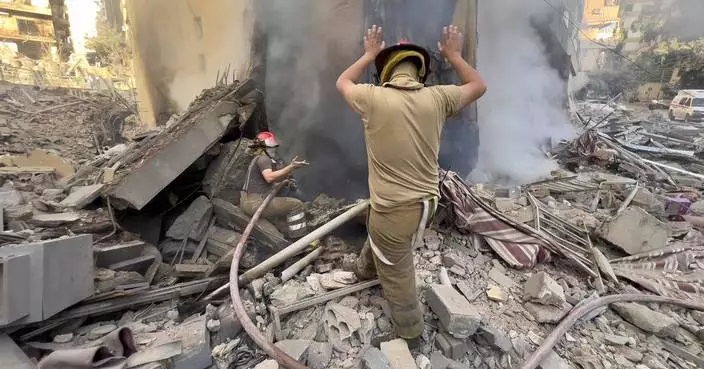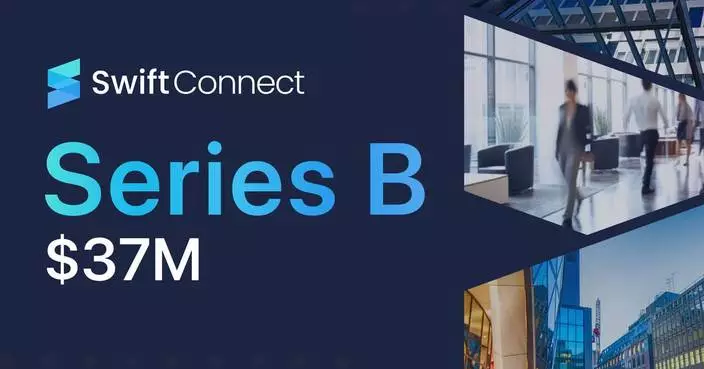Americans are fed up with the price of food, and many are looking to President-elect Donald Trump to lower their grocery bills.
Trump often railed on the campaign trail against hefty price increases for bacon, cereal, crackers and other items.
“We’ll get them down,” he told shoppers during a September visit to a Pennsylvania grocery store.
But the food price inflation that stunned the U.S. — and other parts of the world — in 2021 and 2022 had complicated causes that are difficult to unwind, from the pandemic to the Ukraine war to avian flu. And many economists think Trump’s plans, including putting tariffs on imported foods and deporting undocumented workers, could actually make food prices rise.
As of October, U.S. prices for food eaten at home were up 28% from 2019, according to government figures released Wednesday. But the growth peaked in 2022; between October 2023 and October 2024, food prices rose 2%, which was lower than the overall inflation rate.
Supermarket sticker shock nevertheless weighed on the U.S. electorate. About 7 in 10 voters -- including 70% of women and 63% of men -- said they were very concerned about the cost of food and groceries, according to AP VoteCast, a survey of more than 120,000 voters. Only 1 in 10 said they were not too concerned or not at all concerned.
Trump won decisively among voters who said they were “very” concerned. Around 6 in 10 voters in that group supported him, while 4 in 10 supported Vice President Kamala Harris, his Democratic rival. Harris won strong majorities of voters who were somewhat concerned, not too concerned or not at all concerned.
Asked how he would lower grocery prices during a September town hall in Michigan, Trump said tariffs would help U.S. farmers. Trump has called for a 60% tariff on products made in China and a “universal’’ tariff of 10% to 20% on all other foreign goods that enter the United States. In some speeches, he mentioned even higher percentages.
Trump said U.S. farmers were getting “decimated” because the U.S. allows so many agricultural products into the country. As of 2021, the U.S. imported 60% of its fresh fruit, 38% of its fresh vegetables — excluding potatoes and mushrooms — and 10% of its beef, according to the U.S. Department of Agriculture.
“We’re going to have to be a little bit like other countries,” he said. “We’re not going to allow so much come. We’re going to let our farmers go to work.”
But David Ortega, a professor of food economics and policy at Michigan State University, said that food producers rely on imported goods like fertilizer, equipment and packaging materials. If they’re forced to pay more for those items, they will raise prices, Ortega said.
U.S. farmers also could have trouble selling their goods overseas, since other countries would likely respond with retaliatory tariffs, he said. Around 20% of U.S. agricultural production is exported each year, according to the USDA.
The American Farm Bureau did not respond to a request for comment from The Associated Press. The Consumer Brands Association, which represents big food companies like Coca-Cola and Nestle as well as personal care companies like Procter & Gamble, says many of its members need ingredients that are grown outside the U.S., like coffee, bananas and chocolate.
“There is a fundamental disconnect between a stated goal of reducing grocery prices and tariff policy that only stands to increase those costs,” said Tom Madrecki, the association's vice president of campaigns and special projects.
Ortega said Trump’s plans to deport people who are in the U.S. illegally could also drive up grocery prices. There are more than 2 million undocumented workers throughout the U.S. food chain, he said, including an estimated 1 million working on farms, 750,000 working in restaurants and 200,000 in food production.
At the Michigan town hall, Trump said lowering energy costs by increasing oil and gas drilling would also lower food prices.
“If you make doughnuts, if you make cars, whatever you make, energy is a big deal, and we’re going to get that. It’s my ambition to get your energy bill within 12 months down 50%,” he said.
Energy makes up a relatively small portion of the cost of food production and sales. For every $1 spent on food in 2022, a little less than 4 cents went toward energy costs, according to the USDA. Farm production cost 8 cents, while food processing cost 14 cents.
Joseph Glauber, a senior research fellow with the International Food Policy Research Institute, said energy prices are important, but they have already come down significantly over the past year.
“I think it would be difficult for the Trump administration to have much impact on energy prices in the short run,” Glauber said.
When asked whether Trump had plans beyond energy and tariffs to lower grocery costs, a spokesperson for his transition team didn’t give further details.
“The American people re-elected President Trump by a resounding margin, giving him a mandate to implement the promises he made on the campaign trail. He will deliver,” Karoline Leavitt said.
Maria Kalaitzandonakes, an assistant professor of agricultural and consumer economics at the University of Illinois, said her research shows that most voters think politicians can bring down grocery prices.
Jordan Voigt, 34, a single parent of two toddlers, said she is currently living with her parents near Asheville, North Carolina, because the cost of fuel and groceries has gotten so high.
Voigt said she voted for Trump, in part, because she believes he’s a businessman who can lower prices.
“He doesn’t just say, ‘Oh, this is how much this is costing, the American people have to take it.’ I appreciate that,” Voigt said during a gathering on election night. “He stands up and goes, ‘Nope, the American people aren’t going to pay that.’ And he’s like, ‘You’re going to have to figure out a way to make that cheaper.’”
But Ortega and other economists say there's very little a president can do, especially in the short term, to lower grocery prices. Sustained price declines typically only happen in steep, protracted recessions.
“People want grocery prices to get down to pre-COVID levels, and that's just not going to happen,” he said. “Deflation is not something that we want.”
Kalaitzandonakes agrees that the White House has little power to get food prices down swiftly.
But presidents can encourage policies that help tame grocery price inflation over the longer term, she said, like increasing competition and investing in infrastructure, agricultural technology and crops that are resistant to pests and extreme weather.
“Lowering food prices is not great," Kalaitzandonakes said. “What we would want to think about instead is, is your income keeping pace with your bills versus is your bill at the grocery store coming down.”
AP Video Journalist Erik Verduzco contributed from Asheville, North Carolina.
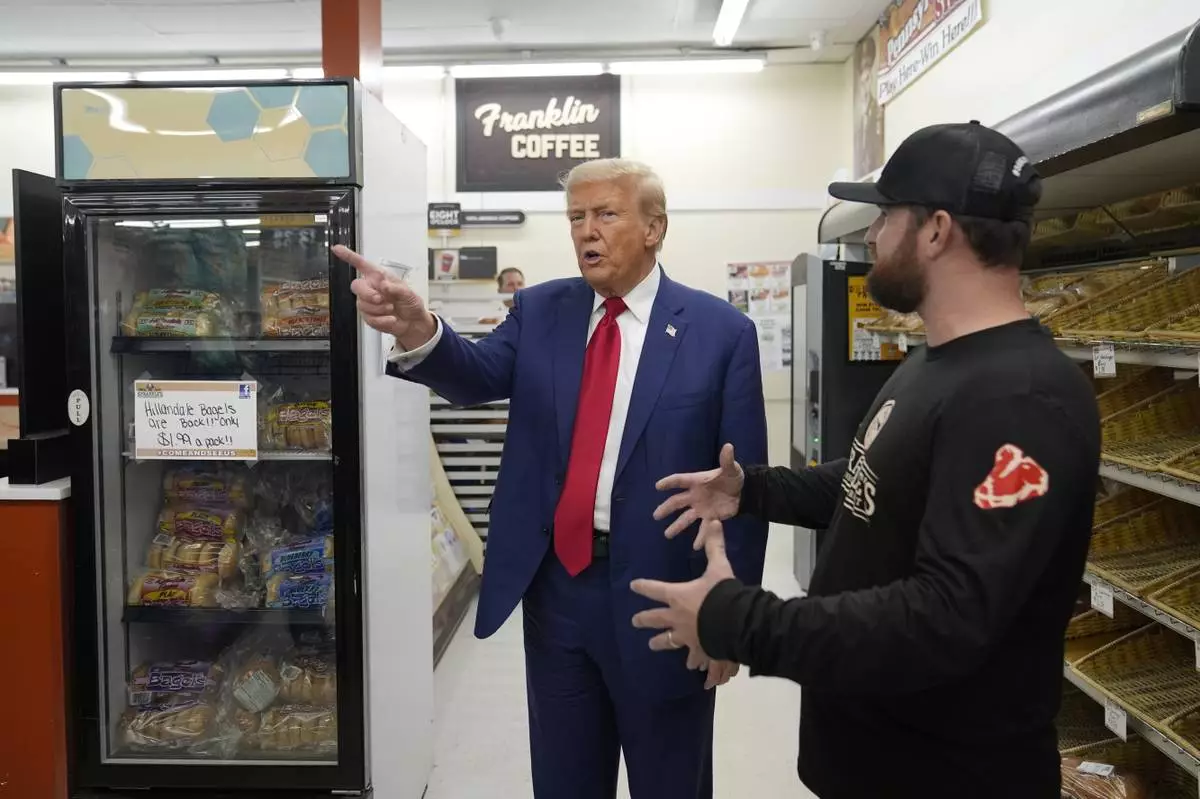
FILE - Republican presidential nominee former President Donald Trump visits Sprankle's Neighborhood Market in Kittanning, Pa., Sept. 23, 2024. (AP Photo/Alex Brandon, File)
DUBAI, United Arab Emirates (AP) — The head of the International Atomic Energy Agency warned Thursday that the “space for negotiation and diplomacy ... is getting smaller” over Iran's advancing atomic program as wars in the Mideast rage on and as President Donald Trump will return to the White House.
Rafael Mariano Grossi of the IAEA was visiting Tehran in an effort to restore his inspectors' access to Iran's program and answer still-outstanding questions over it, as he has on previous trips with limited success since Trump unilaterally withdrew the U.S. from the Islamic Republic's nuclear deal with world powers.
However, the remarks from both Grossi and his Iranian counterpart at a news conference suggested sizeable gaps still exist, even as some countries are pushing to take action against Iran at an upcoming IAEA Board of Governors' meeting.
“We know that it is indispensable to get, at this point of time, to get some concrete, tangible and visible results that will indicate that this joint work is improving (the) situation, is bringing clarification to things and in a general sense it is moving us away from conflict and ultimately war," Grossi said.
Since the deal’s collapse in 2018, Iran has abandoned all limits on its program, and enriches uranium to up to 60% purity — near weapons-grade levels of 90%.
Surveillance cameras installed by the IAEA have been disrupted, while Iran has barred some of the Vienna-based agency’s most experienced inspectors. Iranian officials also have increasingly threatened that they could pursue atomic weapons, something the West and the IAEA has been worried about for years since Tehran abandoned an organized weapons program in 2003.
Speaking at a news conference with Mohammad Eslami of the Atomic Energy Organization of Iran, Grossi stressed that while the IAEA and Iran continued to negotiate, time was not necessarily on their side.
“The fact that international tensions and regional tensions do exist — this shows that the space for negotiation and diplomacy is not getting bigger, it is getting smaller,” Grossi said.
Before appearing with Eslami, Grossi met with Iranian Foreign Minister Abbas Araghchi, who later wrote on the social platform X that “differences can be resolved through cooperation and dialogue.” However, he warned Tehran was “NOT ready to negotiate under pressure and intimidation.”
Some politicians have even suggested Iran abandon the Treaty on the Nonproliferation of Nuclear Weapons, known as the NPT, and pursue the bomb. Araghchi referred to Iran as “a committed member of NPT," though Eslami in his remarks warned Iran could retaliate if challenged at the upcoming IAEA Board of Governors' meeting. Grossi acknowledged some nations were considering taking action against Iran.
“We have repeatedly said any resolution seeking to intervene in the Islamic Republic of Iran’s nuclear affairs will be definitely followed by immediate reciprocal steps and we will not allow them to (exert) this kind of pressure," Eslami said.
Journalists at the news conference, as well as Eslami, criticized Israel for its longtime sabotage and assassination campaign targeting Iran's nuclear program. Some noted Israeli officials had threatened Iran's nuclear sites as targets for potential retaliation as Iran and Israel trade direct attacks amid the ongoing Israel-Hamas war in the Gaza Strip and Israel's ground and air offensive in Lebanon.
“The answer is in what we do here, what we, the IAEA, and Iran can do in terms of solving the questions at hand," Grossi said, describing “a situation of tension” with Iran's nuclear program at its center.
“I am here to work with Iran, (to) try to find adequate solutions to ease tensions, to move forward. This is my target. This is my concern. And I am confident that we are going to be able to do it," he said.
But as the two men ended the news conference to shouted questions from journalists, neither had offered any sign a breakthrough was imminent.
Grossi also met Thursday for the first time with reformist President Masoud Pezeshkian. He’s scheduled to visit Iran’s Fordo and Natanz nuclear enrichment sites Friday.
Associated Press writer Nasser Karimi in Tehran, Iran, contributed to this report.
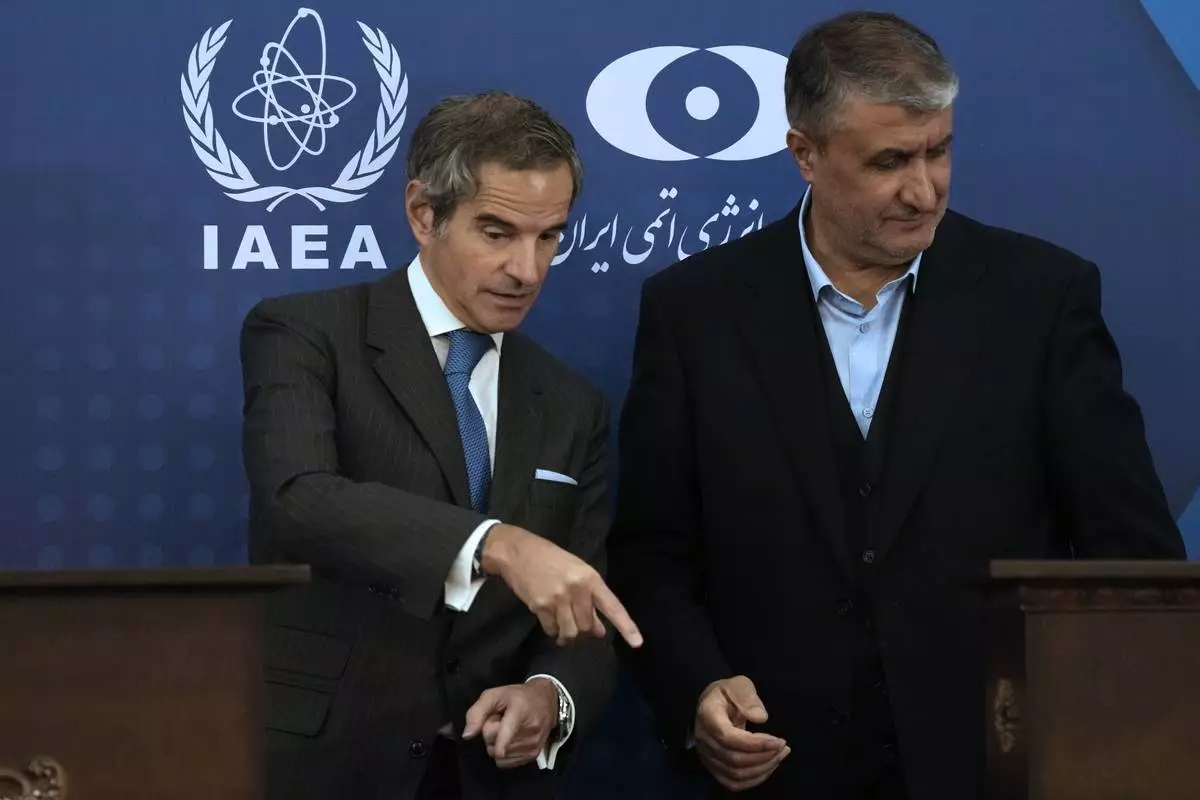
International Atomic Energy Agency, IAEA, Director General Rafael Mariano Grossi, left, gestures at the conclusion of his joint press conference with Iran's Atomic Energy Organization head Mohammad Eslami in Tehran, Iran, Thursday, Nov. 14, 2024. (AP Photo/Vahid Salemi)
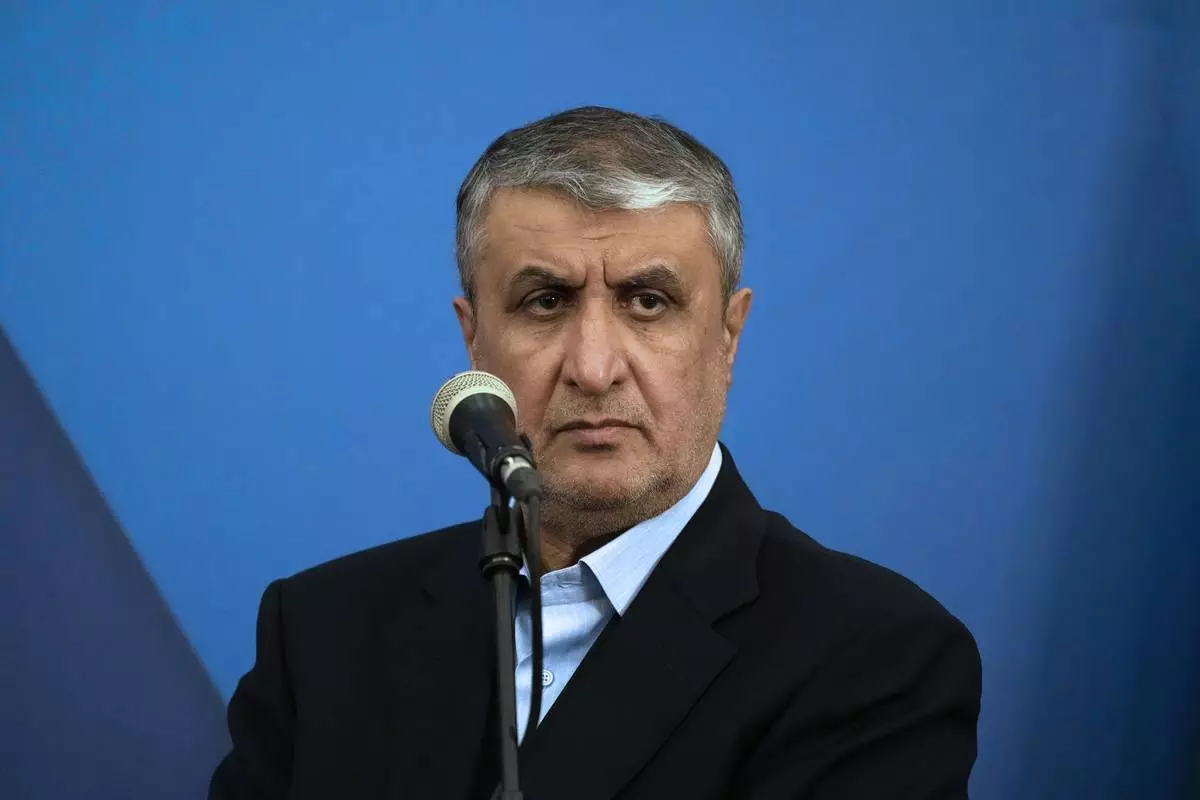
Head of Atomic Energy Organization of Iran Mohammad Eslami listens during his joint press conference with International Atomic Energy Agency (IAEA) Director General Rafael Mariano Grossi in Tehran, Iran, Thursday, Nov. 14, 2024. (AP Photo/Vahid Salemi)
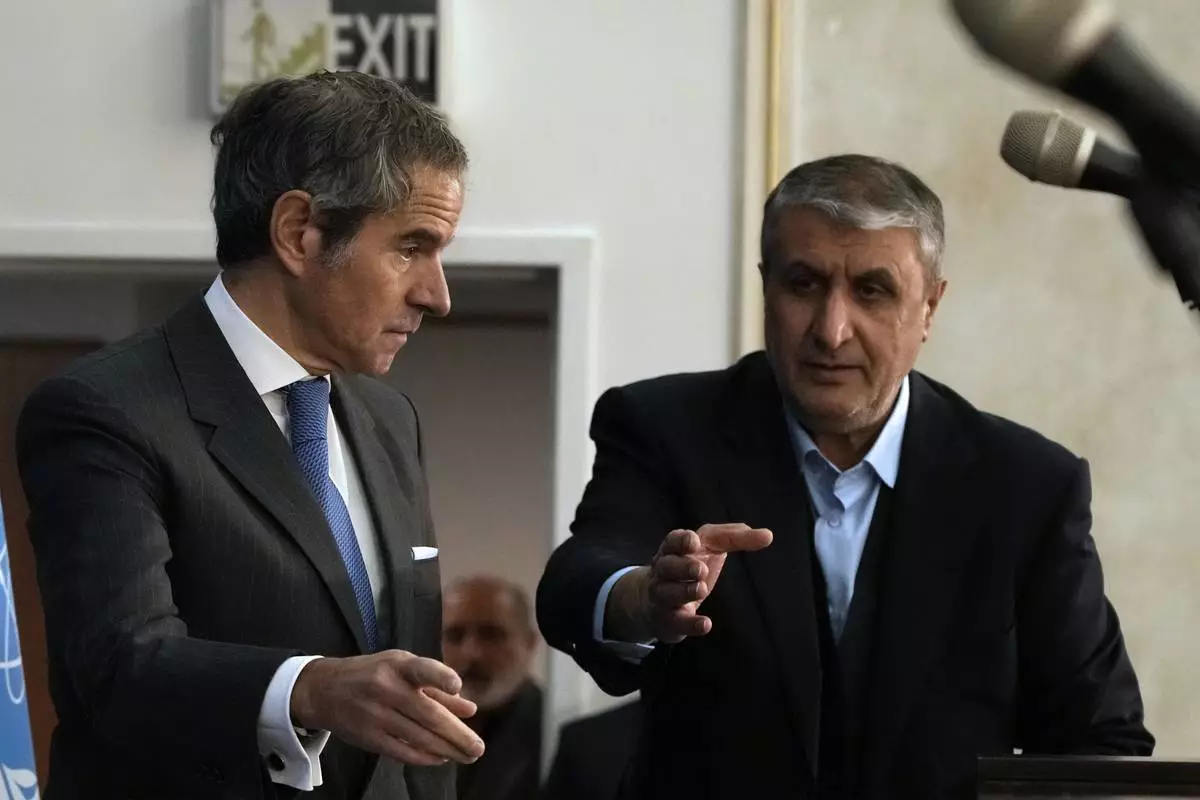
International Atomic Energy Agency, IAEA, Director General Rafael Mariano Grossi, left, and head of Atomic Energy Organization of Iran Mohammad Eslami gesture as they arrive for a press conference in Tehran, Iran, Thursday, Nov. 14, 2024. (AP Photo/Vahid Salemi)
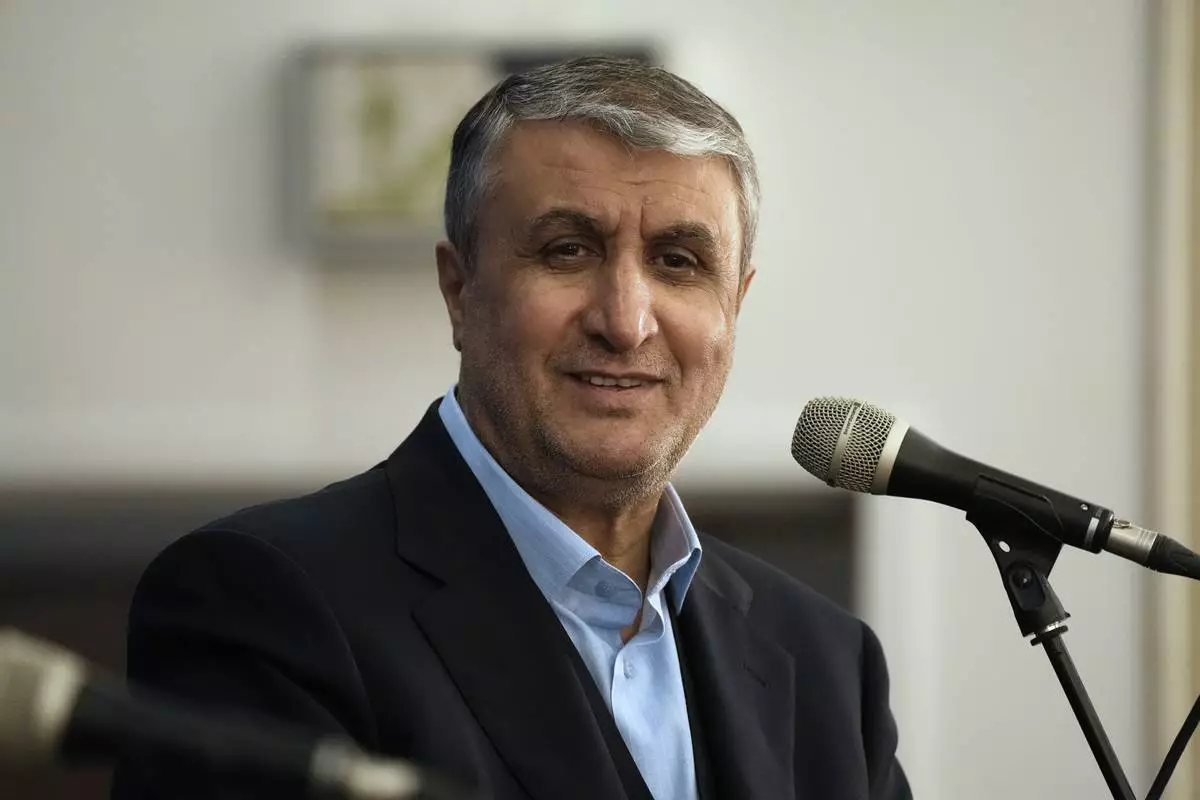
Head of Atomic Energy Organization of Iran Mohammad Eslami listens during his joint press conference with International Atomic Energy Agency (IAEA) Director General Rafael Mariano Grossi in Tehran, Iran, Thursday, Nov. 14, 2024. (AP Photo/Vahid Salemi)
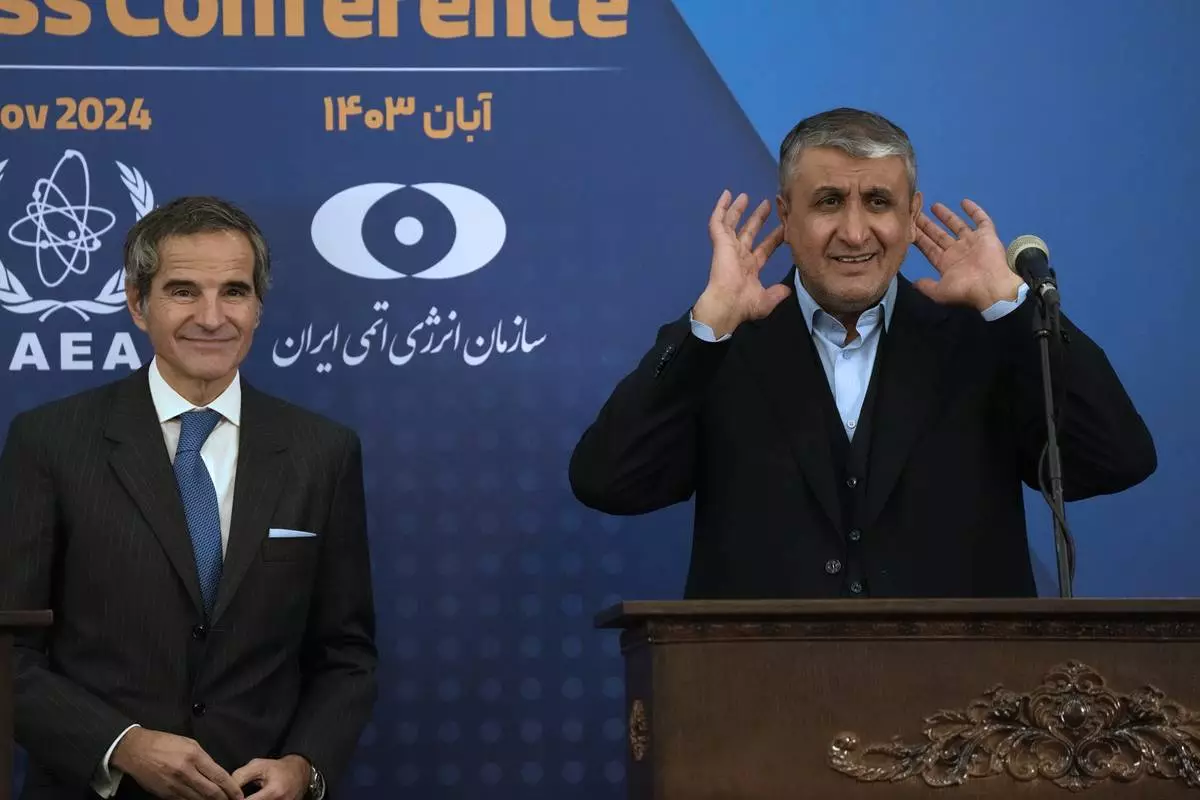
Head of Atomic Energy Organization of Iran Mohammad Eslami, right, tries to listen to a journalist at the conclusion of his joint press conference with International Atomic Energy Agency (IAEA) Director General Rafael Mariano Grossi in Tehran, Iran, Thursday, Nov. 14, 2024. (AP Photo/Vahid Salemi)
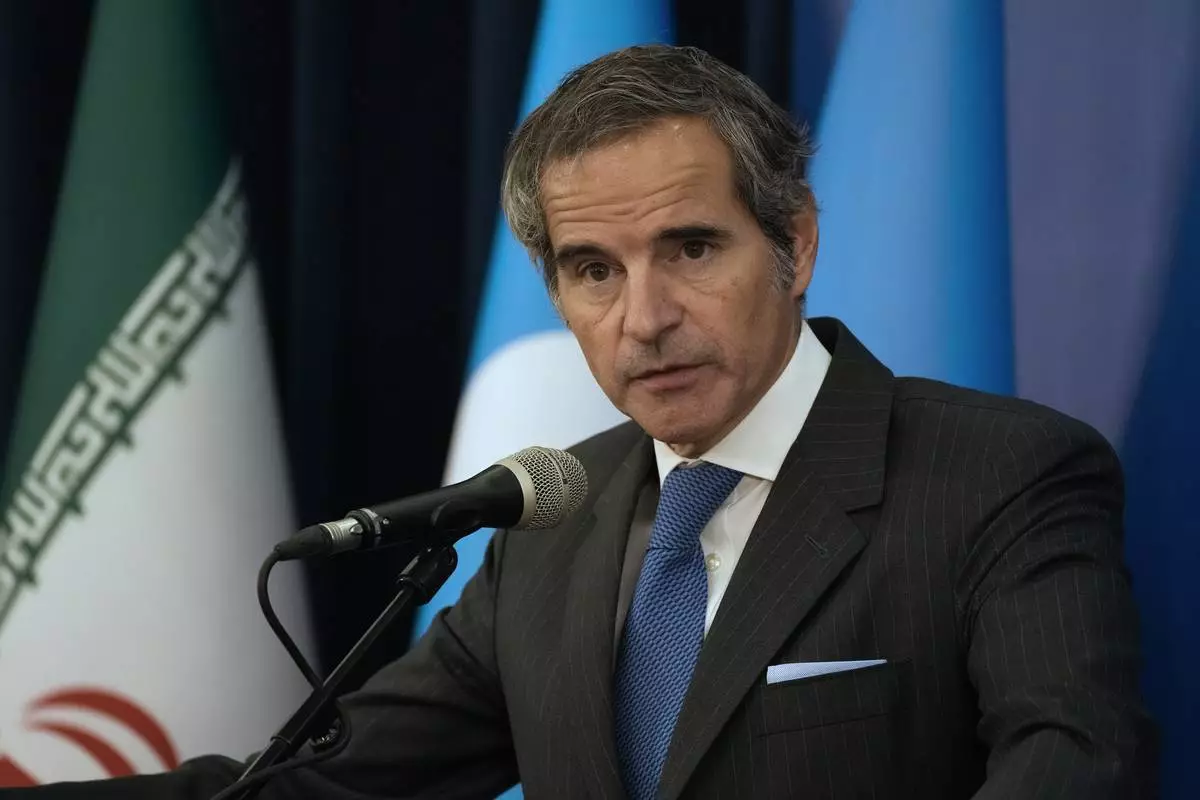
International Atomic Energy Agency (IAEA) Director General Rafael Mariano Grossi speaks during a joint press briefing with head of Atomic Energy Organization of Iran Mohammad Eslami in Tehran, Iran, Thursday, Nov. 14, 2024. (AP Photo/Vahid Salemi)
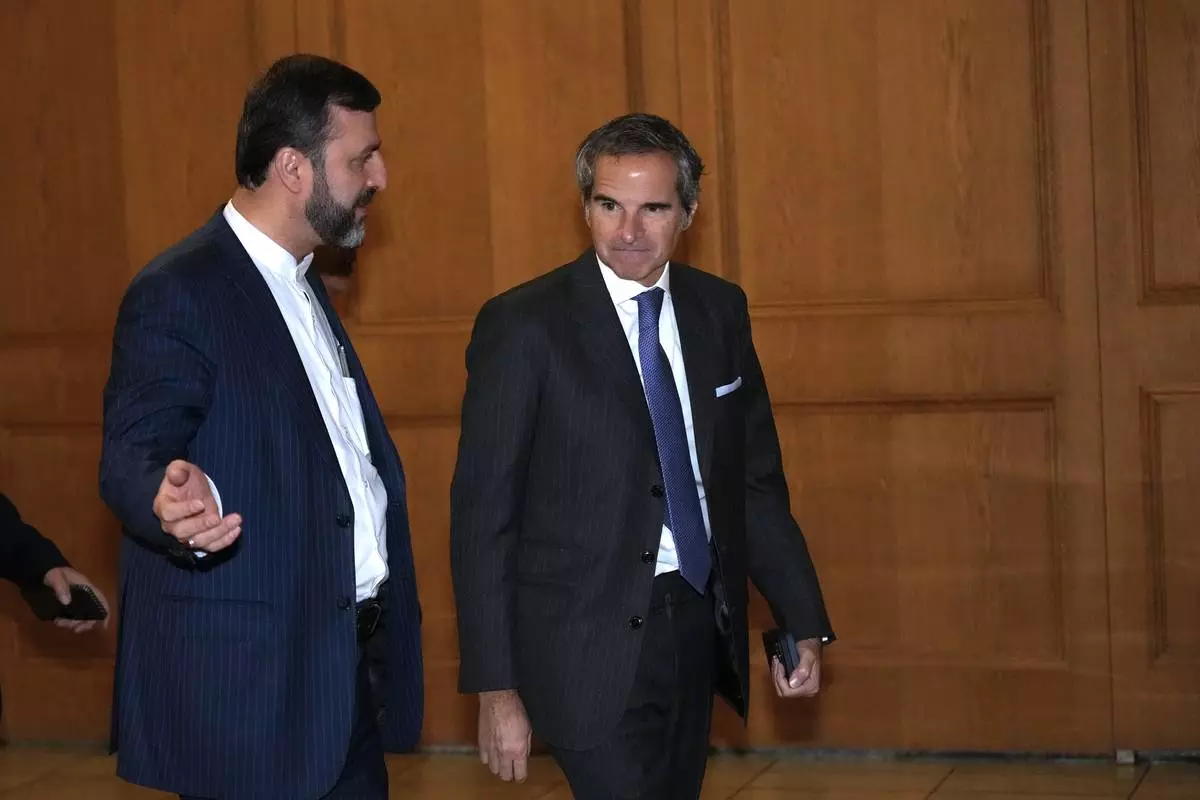
CORRECTS TO INTERNATIONAL ATOMIC ENERGY AGENCY - International Atomic Energy Agency (IAEA) Director General Rafael Mariano Grossi, right, arrives for a meeting with Iranian Foreign Minister Abbas Araghchi as he is accompanied by Deputy Foreign Minister Kazem Gharib Abadi, in Tehran, Iran, Thursday, Nov. 14, 2024. (AP Photo/Vahid Salemi)
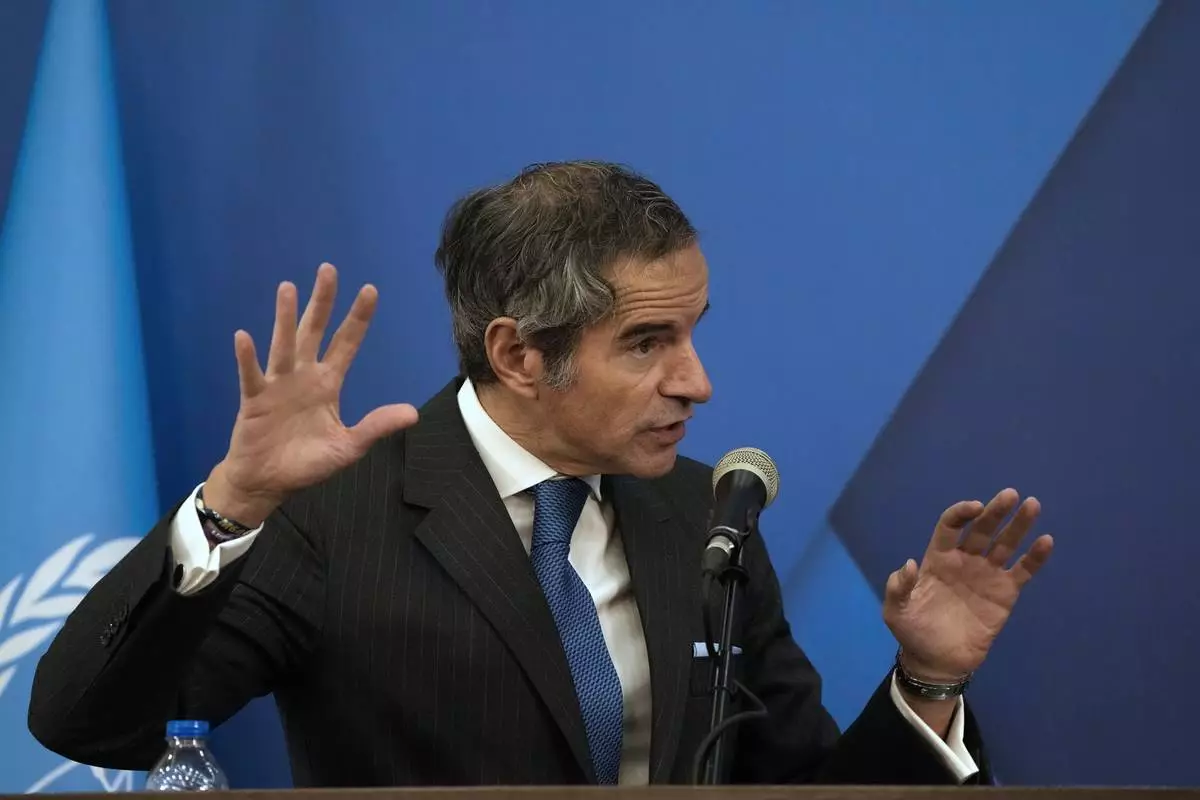
International Atomic Energy Agency, IAEA, Director General Rafael Mariano Grossi speaks during a joint press briefing with Iran's Atomic Energy Organization head Mohammad Eslami in Tehran, Iran, Thursday, Nov. 14, 2024. (AP Photo/Vahid Salemi)
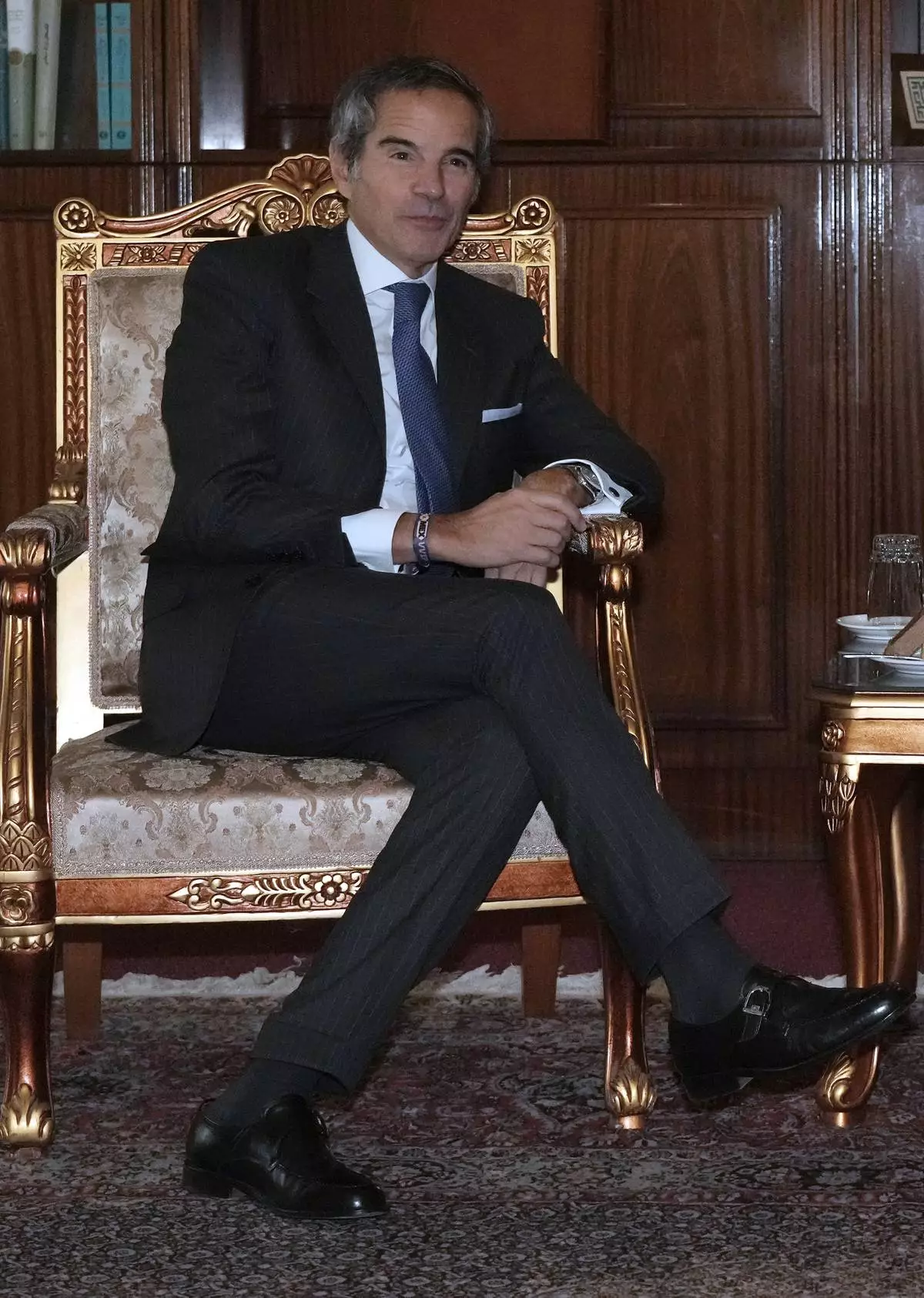
International Atomic Energy Agency (IAEA) Director General Rafael Mariano Grossi sits during a meeting with Iranian Foreign Minister Abbas Araghchi in Tehran, Iran, Thursday, Nov. 14, 2024. (AP Photo/Vahid Salemi)
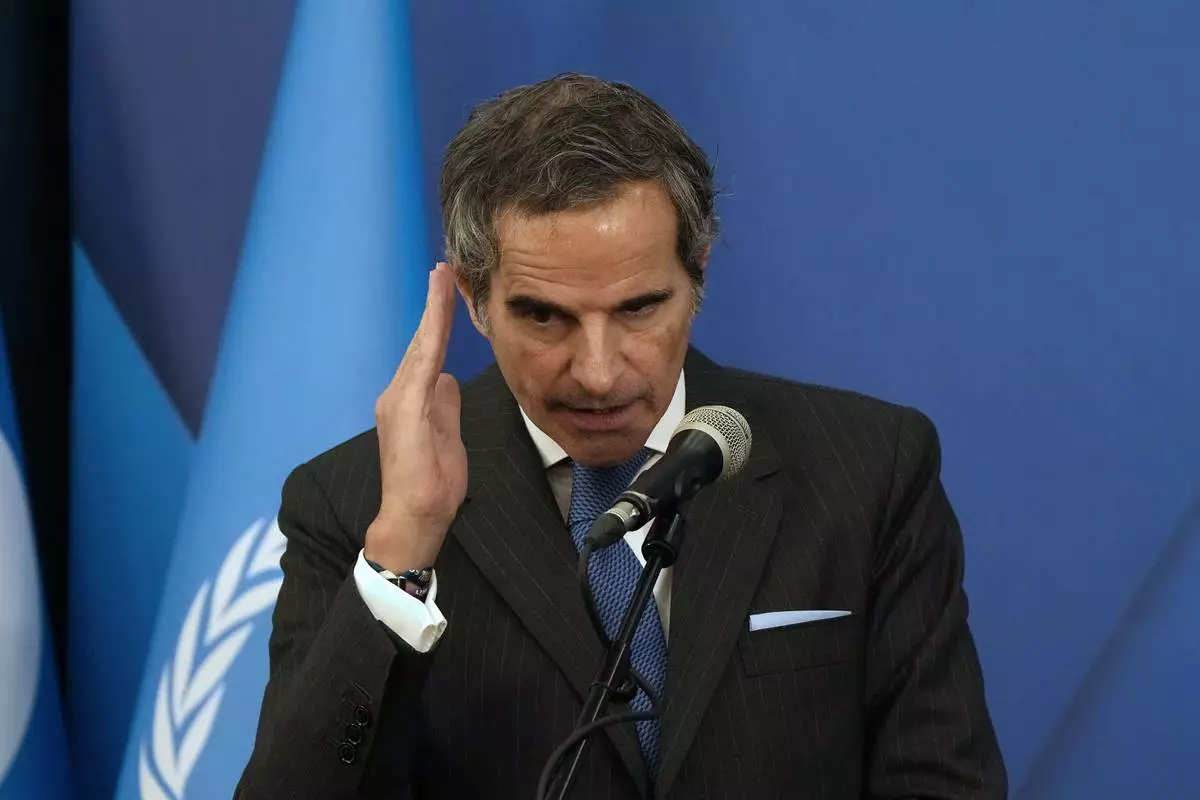
International Atomic Energy Agency, IAEA, Director General Rafael Mariano Grossi speaks during a joint press briefing with Iran's Atomic Energy Organization head Mohammad Eslami in Tehran, Iran, Thursday, Nov. 14, 2024. (AP Photo/Vahid Salemi)
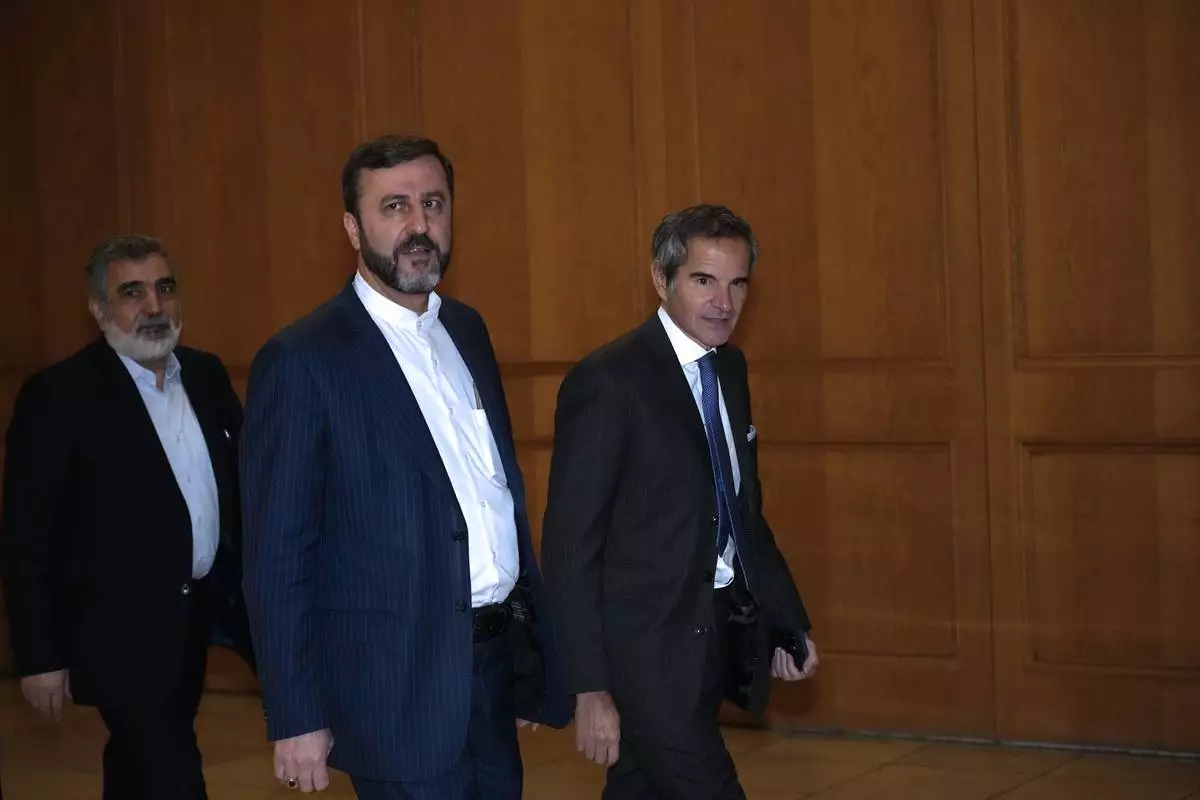
International Atomic Energy Agency (IAEA) Director General Rafael Mariano Grossi, right, arrives for a meeting with Iranian Foreign Minister Abbas Araghchi, unseen, as he is accompanied by Deputy Foreign Minister Kazem Gharib Abadi, second right, and Deputy Chief of Atomic Energy Organization of Iran, Behrouz Kamalvandi in Tehran, Iran, Thursday, Nov. 14, 2024. (AP Photo/Vahid Salemi)
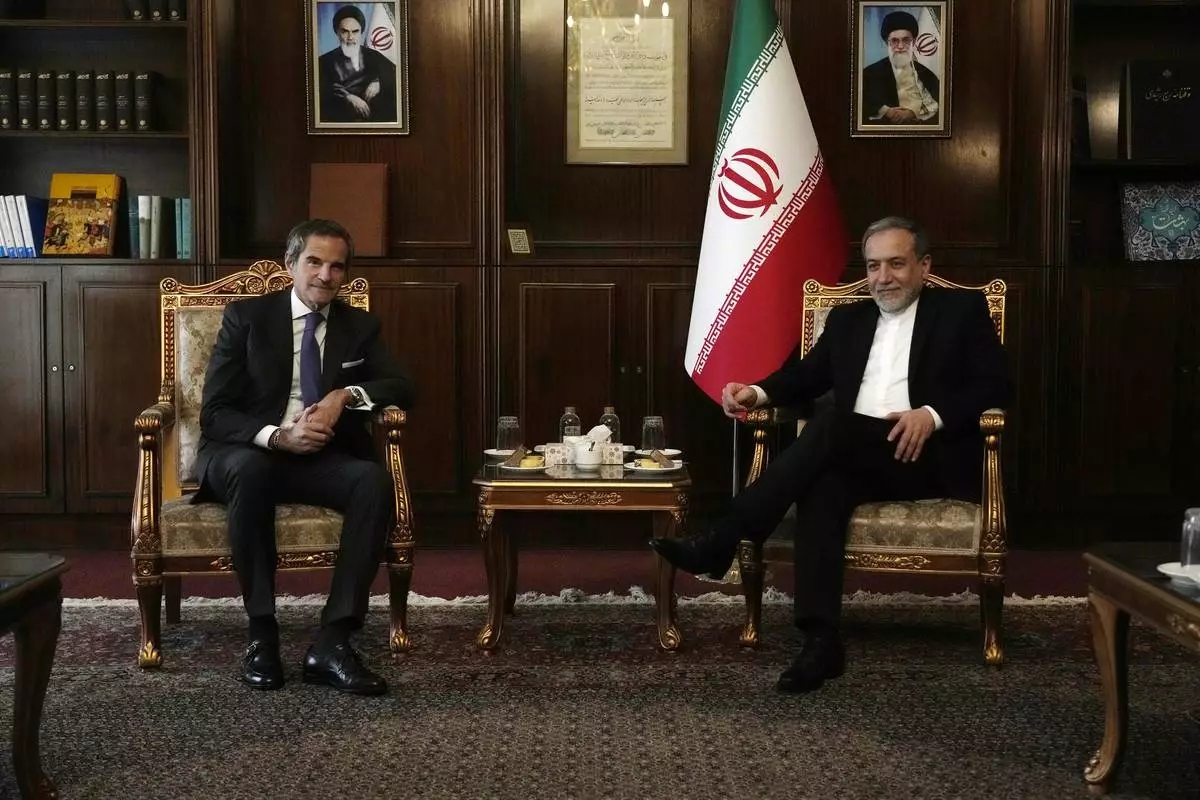
International Atomic Energy Agency (IAEA) Director General Rafael Mariano Grossi, left, meets with Iranian Foreign Minister Abbas Araghchi in Tehran, Iran, Thursday, Nov. 14, 2024. (AP Photo/Vahid Salemi)
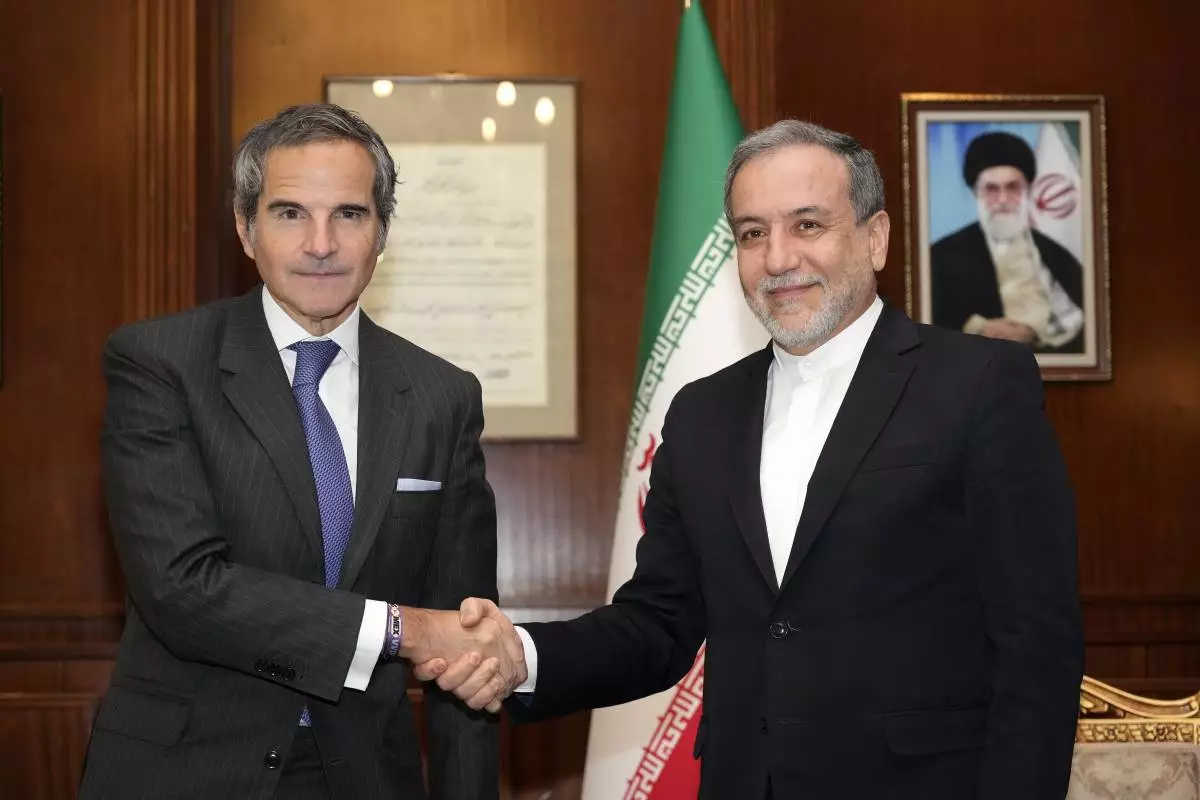
International Atomic Energy Agency (IAEA) Director General Rafael Mariano Grossi, left, shakes hands with Iranian Foreign Minister Abbas Araghchi during their meeting in Tehran, Iran, Thursday, Nov. 14, 2024. (AP Photo/Vahid Salemi)
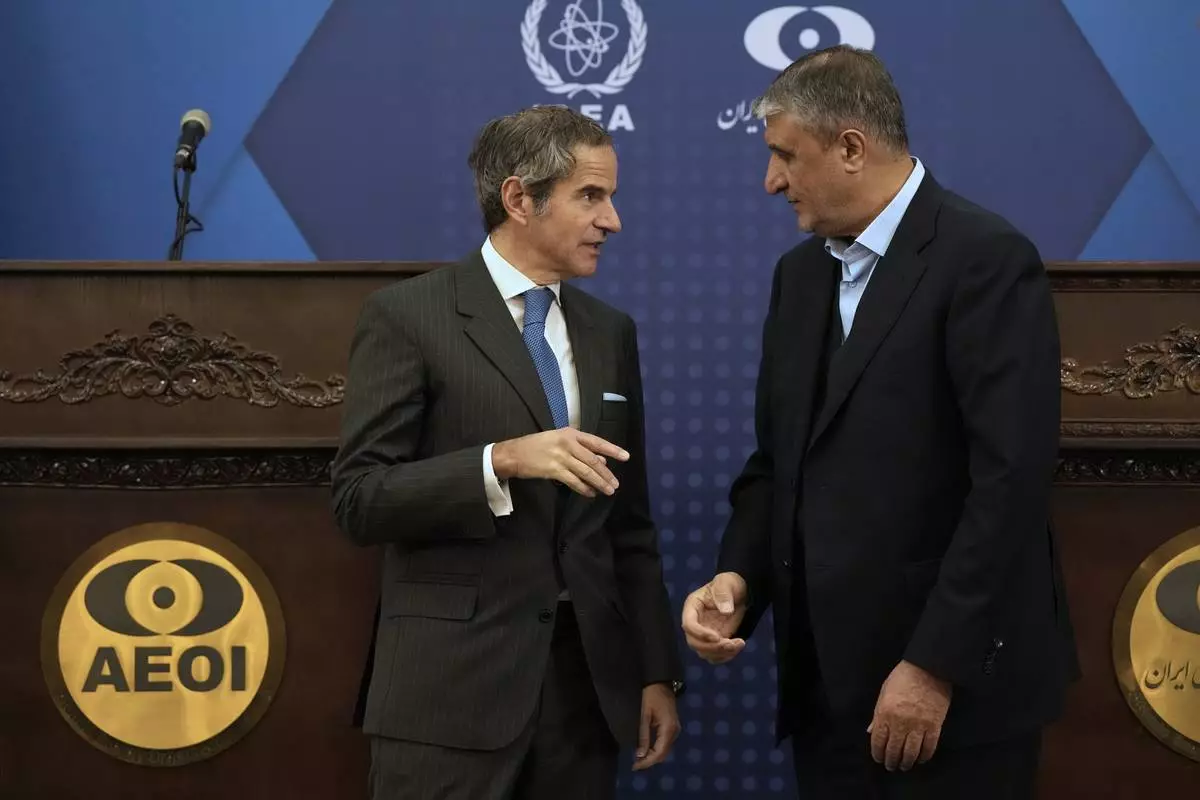
International Atomic Energy Agency, IAEA, Director General Rafael Mariano Grossi, left, talks with Iran's Atomic Energy Organization head Mohammad Eslami at the conclusion of their press conference in Tehran, Iran, Thursday, Nov. 14, 2024. (AP Photo/Vahid Salemi)



